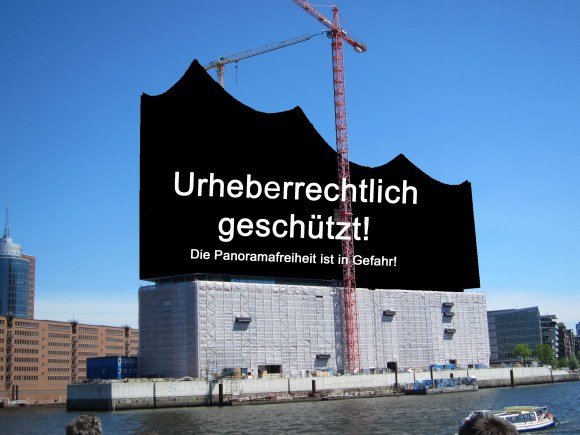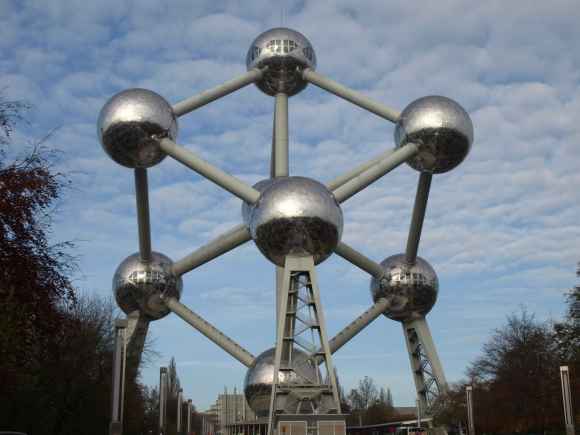
Overture: founding our chapter
When Wikimedia Belgium was founded in 2014 it was a fancy event. There were international guests, reporters, politicians, well-known artists. The venue, the drawing chambers of the President of the Parliament, was indeed an appropriate location. We celebrated Wikimedia, our projects and an important step in the development of a growing free knowledge community.
But there was more. From the very beginning we at Wikimedia Belgium made targeted legislative changes that would allow us to share more knowledge online a priority. The message that in Belgium it was legally not possible to publish images of newer architecture and sculpture under a free license was shared with our guests, but most importantly explained to our hosts in the parliament. We received positive feedback and optimism that this could be fixed.
After the event, as the months passed by, we tried to follow up on freedom of panorama in Belgium, but little happened. The parliament’s agenda was full and the members we had spoken to were busy. Party politics had dictated different priorities and chances of getting traction seemed slim.
EU Intermezzo: Mainstreaming freedom of panorama
In 2015, the European Parliament was working on a report that was going to outline its position on a copyright reform, and the first draft of the so-called “Reda Report”, a full-blown freedom of panorama was proposed. But despite coming very close at several times to finding a compromise on this point, the responsible committee changed the text to restrict the exception to non-commercial uses only. This would of course have had negative consequences on free knowledge, as such a legislative change would have forced us to delete thousands of images depicting public spaces in Europe from Wikipedia articles.
This led to large, European-wide campaign to overturn this decision. Hundreds of Wikimedians participated by sharing images of blacked out buildings demonstrating the consequences of such a change (example at top). Volunteers and staff talked to the media, contacted decision-makers and ran a petition. Eventually the European Parliament dropped not only the non-commercial restriction but also the entire Freedom of Panorama provision from the text. The danger was averted, but positive change was not to be expected. Was the entire effort in vain?

Belgian Duodrama: shifting the momentum
Well, not really! While the campaign was only partly successful, the outreach to Belgian Members of the European Parliament was more effective than we had hoped for. Several MEPs from the liberal group took on a keen interest in the topic and presented it to their colleagues working in Belgium on the national level. One of the parties, luckily a majority coalition one, made freedom of panorama in Belgium its goal.
Soon enough, a proposal to amend the Belgian copyright act was introduced in the Federal Parliament. It wasn’t smooth sailing though. The opposition proposed at three different moments during the legislative process to restrict the exception to non-commercial uses only. Wikimedia Belgium reacted by sending a personalised letter signed by our president to every member of the committee occupied with the reform. We also included a brochure on the disadvantages of non-commercial restrictions and a frequently asked questions sheet that picked up the arguments against freedom of panorama brought forward during the committee meetings and debunked them.
Finally, the full freedom of panorama provision was adopted with 85 votes in favour, 42 against and 12 abstentions. After it had been signed by the King and published in the State Gazette, it came into force on Friday, 15 July 2016. The images of the Atomium to its Wikipedia articles were added not long after.
Finale: A Small Celebration and Many Images
As shown above, the fact that Wikimedia has communities in most regions of Europe and that these cooperate tightly with our EU level working group was in this case the competitive advantage that helped us take a European effort and make use of it on a local level. This public policy ping pong between national capitals the EU administration and legislation is what we need to further develop in order to win even greater victories for free knowledge.
In the meanwhile Wikimedia Belgium has invited all involved and opposing parties to a celebratory reception, 1,500 images from Belgium on Commons were undeleted, and we’re planning larger and more exciting versions of Wiki Loves Monuments and Wiki Loves Public Art. We are also looking into the next public policy improvements we can achieve, and we are organising Wiki Loves Monuments together with the Luxembourgish community!
Dimitar Dimitrov, Project Lead
Free Knowledge Advocacy Group EU

Can you help us translate this article?
In order for this article to reach as many people as possible we would like your help. Can you translate this article to get the message out?
Start translation